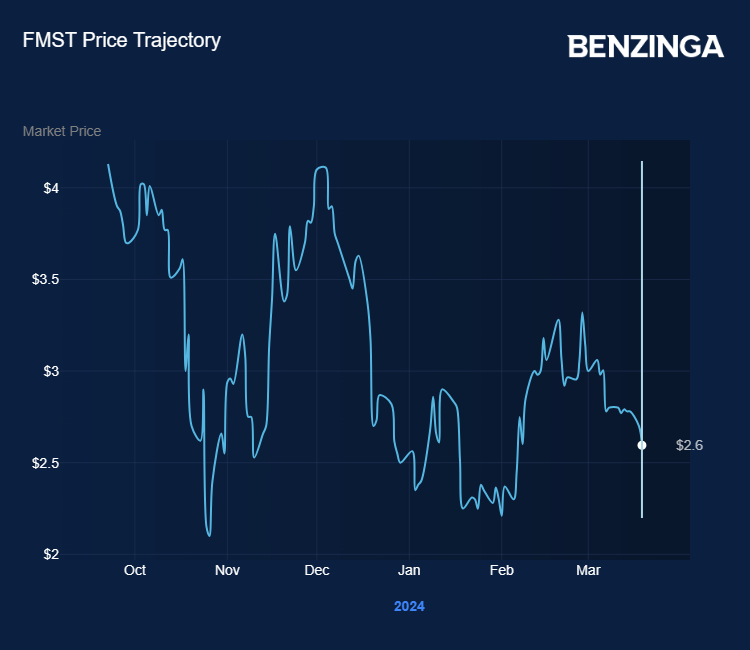Zinger Key Points
- Lithium miner awaiting approval for C$10 million infrastructure development grant.
- CEO not concerned about tumbling lithium prices as it hasn't started full-scale production yet.
- Get access to your new suite of high-powered trading tools, including real-time stock ratings, insider trades, and government trading signals.
Foremost Lithium Resource & Technology Ltd FMST has begun drilling at its Snow Lake, Manitoba development in Canada.
Jason Barnard, president and CEO of Foremost Lithium, told Benzinga at the recent Prospectors And Developers Association of Canada (PDAC) conference in Toronto, that the company was awaiting approval on a C$10 million grant from the Canadian government’s Critical Mineral Infrastructure Fund (CMIF).
“The [CMIF] fund is to help onshore lithium production for the North American electric vehicle and battery supply chain,” said Barnard.
He added: “There’s a strong government initiative to help create that here in North America.”

Also Read: ‘White Gold’ Rush Grapples With Long-Term Sustainability: Implications Of Lithium Mining
Direct Ship Ore Strategy
Canada has earmarked C$1.5 billion to support clean energy and transportation infrastructure projects. For example, Foremost is now looking to use the money to develop a road connecting Jean Lake and Zoro.
This will allow the transportation of equipment, goods and parts necessary to expand its operations. The road will also be used to transport ore to its Tanco mine where it is transformed into concentrate before shipping to customers. This is Foremost’s direct ship ore (DSO) strategy.
Before becoming the company’s president and CEO, Barnard was a financier.
“I helped finance Foremost’s foray in to lithium — and I kept financing the company all the way to becoming the largest shareholder,” he said.
“In the last year or so I became the president and CEO, in order to take more of a role in the company and so we could get listed on NASDAQ, which opens us up to a very large U.S. market,” he added.
Lithium Prices Tumble
Barnard said he hoped to hear back about the government grant in the next two or three months, but is very positive about process.
In the meantime, is he worried that lithium prices have been falling heavily? Indeed, since hitting a record close to $600,000 per metric ton in November 2022, lithium has fallen to $115,500. The iShares Lithium Miners and Producers ETF ILIT is down 18% since the start of the year.
“Lithium prices have been depressed but because we’re dealing with the end users — electric vehicle and battery manufacturers, we still have time to build our reserves and our direct shipping ore strategy, so the short term ups and downs in commodity prices don’t particularly affect us,” Barnard said.
“I feel there’s a longer-term goal and cycle involved with lithium and all things EV-related, so the demand will carry on.
“It’s just a short-term situation, but it doesn’t really affect our bottom line because we’re yet to be in production, we’re yet to produce revenues. We’re more in the grow-up reserves and build that asset in the ground phase..”
The production timeline, Barnard explained is well into 2025. In the mining and exploration business, that’s relatively short term.
“That’s what sets us apart from other companies in terms of, they’ll drill that asset and then a major company will come and buy that asset off you, and they’ll deal with the revenue stream down the road.
“With us — we’re focused on profitability and revenue streams for our company.”
Now Read: Saudi Arabia's Lithium Involvement Could Showcase Environmentally-Friendly Extraction Methods
© 2025 Benzinga.com. Benzinga does not provide investment advice. All rights reserved.
Trade confidently with insights and alerts from analyst ratings, free reports and breaking news that affects the stocks you care about.